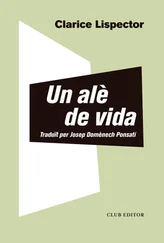A RIDE ON A CAMEL, THE SPHINX AND A BELLY-DANCER
On one of my trips to Europe, the plane, for some reason never explained, had to make a detour. And quite unexpectedly, I found myself spending three days in Egypt. I first saw the Pyramids by night. I went there by car and the sky was pitch black. As I got out of the car I asked: But where are the Pyramids? They were only two metres away. An overwhelming apparition. By day, they seem less threatening. I also saw the Sahara desert in the daylight. The sands are not so much white as light yellow. There was a camel hirer on hand and for a pittance tourists could ride a camel. I sat between its two humps. It is the strangest creature and never stops chewing its food. I believe the camel has two stomachs or am I imagining things? I also saw the Sphinx. I could not decipher her meaning, nor could she decipher mine. We confronted each other as equals. She accepted me and I accepted her. Each with her own mystery.
In Morocco, I was invited to go and see the famous belly-dance . I could scarcely believe my eyes. Or my ears. The dancer was shaking her belly to the tune of: ‘ Mamá, yo quiero, mamá yo quiero mamar! ’ [‘Mummy I want, Mummy I want to suckle.’]*
A long time ago I met Ivan Lessa in some queue or other, and we were deep in conversation when Ivan, sounding startled, said to me: look at that odd sight. I looked behind me and saw a man coming round the corner, with his placid little dog on a lead.
Except that it was not a dog. The animal behaved like a dog, and the man behaved like a man walking his dog. But this was no dog. It had the elongated snout of an animal capable of drinking from a tall glass, and a long, hard tail. Admittedly, it could have been simply an unusual crossbreed. Ivan suggested that it might be a raccoon. But I thought the animal was too much like a dog in the way it trotted to be a raccoon. Unless it was the most domesticated and abnormal raccoon I had ever seen. Meanwhile the man was calmly approaching. Well, perhaps not calmly: there was a certain tenseness about him. It was the calm of someone who has accepted a challenge: he had the look of a born fighter. There was nothing eccentric about his behaviour; it was an act of courage that he should appear in public walking his pet. Ivan suggested it could be some other species, but the name had momentarily escaped him. I was not convinced. Only later did I understand my embarrassment; it was not exactly mine, but stemmed from the fact that the animal no longer knew what it was, and was unable, therefore, to project any clear image of itself.
Until the man passed us. Unsmiling, his shoulders drawn back, proudly appearing in public. No, it has never been easy, being judged by people standing in a queue and demanding more of us. The man pretended to have no need of admiration or pity; but we can all recognize the martyrdom of someone who is cherishing a dream.
— What animal is that? I asked the man, intuitively adopting a gentle tone of voice rather than offend him with my curiosity. I asked him what animal it was, but my question also implied: ‘Why are you doing this? What has driven you to invent a dog? Why not a real dog? for dogs do exist! Or had you no other means of capturing the grace of this creature except with a collar? Don’t you realize that you destroy a rose if you crush it in your hand?’ I know that tone is a unity which cannot be divided by words, but to splinter silence into words is one of my clumsy ways of loving silence. And by shattering silence I have so often killed what I understand. Although — glory be to God — I am more familiar with silence than with words.
Without stopping, the man replied briefly but without being curt. It was a raccoon. We kept on staring. Neither Ivan nor I smiled. There was an atmosphere of tension and intuition. We just stood there staring.
It was a raccoon which believed itself to be a dog. At times, with dog-like gestures, it would pause to sniff at things, which caused the lead to tighten and delayed its master in that familiar synchronization between man and dog. I stood there watching the raccoon which did not know what it was. I thought to myself: if the man is taking it to play in the park, there will come a moment when the raccoon will start to feel uneasy: ‘Why for heaven’s sake are dogs staring and barking at me so ferociously?’ I also imagined that the raccoon, after having spent such a perfect day as a dog, might sadly be thinking to itself, as it looked up at the stars: ‘What have I achieved in the end? What is missing in my life? I am as contented as any dog, so why this sense of emptiness, this longing? What is this anxiety, as if I were only capable of loving what I do not know?’ And the man, the only person capable of ridding the raccoon of its uncertainty, that man will never answer those questions, for fear of losing the raccoon forever.
I also thought about the threatening hatred which existed in the raccoon. It felt love and gratitude for the man. But deep down, there was no way of avoiding the truth; only the raccoon did not perceive that it hated the man because it was essentially confused.
Suppose the mystery of its true nature had suddenly been revealed to the raccoon? I tremble to think of the fatal chance which might have brought that raccoon to an unexpected confrontation with another raccoon, and therefore to self-recognition. I tremble to think of that moment when the raccoon would have experienced the most blissful shame which is given to us… to me…to us… I know full well that the raccoon would have every right, on discovering the truth, to savage the man with all the hatred that one creature can inflict upon another — to defile the other’s essence in order to exploit him. I sympathize with the animal, I side with the victims of perverted love. But I beseech the raccoon to pardon the man and to pardon the man with infinite love. Before abandoning him.
TO REMEMBER WHAT NEVER EXISTED
To write often means remembering what never existed. So how can I know what has never existed? Like this: as if I were remembering. By an effort of memory , as if I had never been born. I was never born. I have never lived. But I remember, and remembering is like an open wound.
Even as a boy he was someone who insisted on choosing. Among the thousand things which he might have been, he exercised the right to choose. Putting on his spectacles, he would set to work, trying to see whatever he could and probing with sweaty hands the things he could not see. He was trying to choose and indirectly chose himself. Little by little, he forged his own personality. He went on and on selecting the essentials. In relative freedom, if one discounted the furtive determinism which quietly operated without giving itself a name. Discounting this furtive determinism, he was free to choose himself. He separated the so-called wheat from the chaff and ate only the best. Sometimes he ate the worst: and that was his most difficult choice. He separated perils from the great peril, and found to his dismay that what he was left with was the great peril itself. To his horror, he found himself determining the weight of things. He pushed aside the lesser truths which he ended up ignoring. The truths he craved were the most difficult to bear.
But after ignoring the lesser truths, he began to resemble other beings, as if enshrouded in mystery. His ignorance transformed him into a mysterious being. He had also become a mixture of what others thought of him and what he really was: a wise ignoramus; an ingenuous sage; oblivious, yet well aware of other things; an honest rogue; an unconscious thinker; a man full of nostalgia for the things he once knew, and full of regret for the things he had irretrievably lost after making a definite choice; a courageous human being because it was now too late and he had already chosen. Paradoxically, this gave him the discreet and wholesome contentment of the peasant who only has to cope with simple things. This gave him that unintentional austerity which all essential labour confers. When it came to choosing and adjusting, there was no fixed time for starting or finishing: it was the task of a lifetime.
Читать дальше












